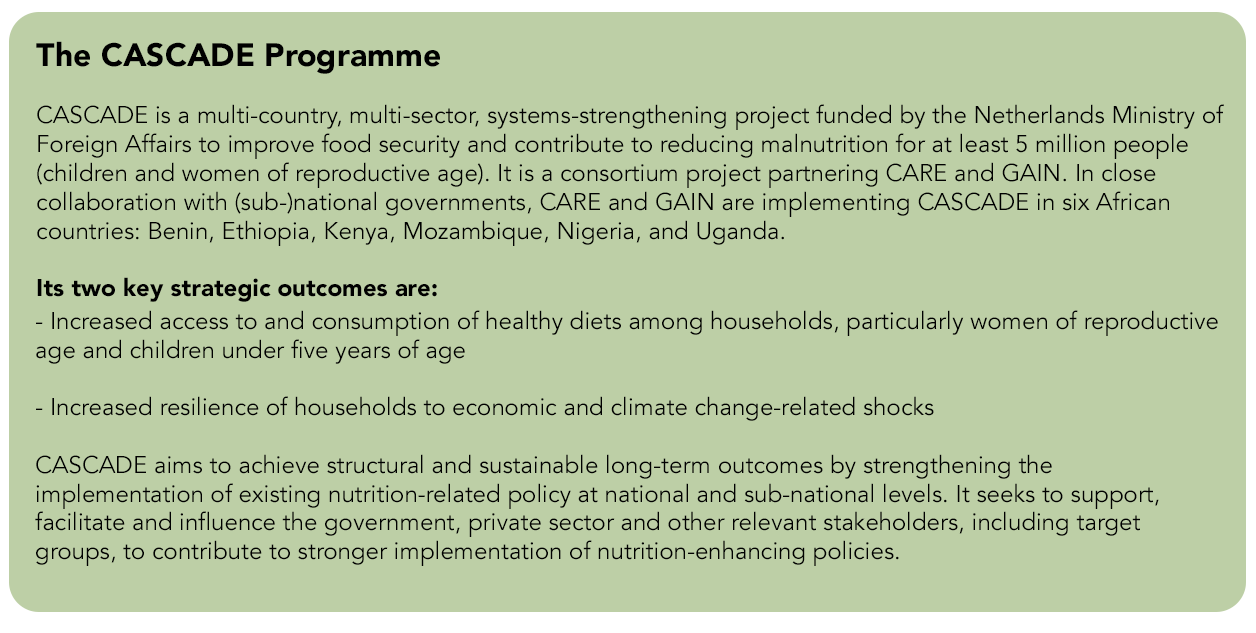The global community is dealing with multiple and interconnected crises. 735 million people faced hunger in 2022, while two in three women have at least one micronutrient deficiency. At the same time, overweight and obesity are rising (1, 2). Over 3 billion of us – 42% of the global population – cannot afford a healthy diet (3). The climate crisis is deepening these challenges by damaging food systems and fuelling conflicts and forced displacement. For too long, the interlinkages among nutrition, food systems and climate crises have been ignored, with responses and approaches to address them designed in a siloed manner. We cannot continue to operate with such siloed vision.
Food production drives significant greenhouse gas emissions, leading to climate change. Depending on diet choices and production methods, food emissions might rise further. On the other hand, climate change and environmental degradation also affect food production. Soil health and biodiversity are threatened in many areas. Extreme weather events such as droughts, floods, cyclones, and heatwaves grow more common. Just a few examples out of many are prolonged droughts in Kenya, Uganda and elsewhere in the Horn of Africa, while Mozambique has dealt with the devastating effects of violent cyclones. Such events disrupt food production and food prices, threatening food security and driving devastating nutrition outcomes particularly among vulnerable women and young children (4).
Social and cultural norms, including gender inequalities, mean climate change disproportionately affects women and girls. Climate shocks, for example, increase domestic workloads for women who are often responsible for securing resources like food, water, and fuel for their families (5). Limited decision-making power and unequal access to and control over resources hold women back in adopting effective strategies to respond to the impacts of climate change.
The CAtalyzing Srengthened policy aCtion for heAlthy Diets and resiliencE (CASCADE) program aims to increase women's and children's resilience so that they achieve and maintain good nutrition, including healthy diets in the face of climate-change related shocks and stresses. Better resilience can come in two ways: through decreasing vulnerability to shocks and stresses, or through increasing peoples’ readiness to bounce back when such situations arise. Working in policy areas where nutrition and climate meet, CASCADE’s strategy aims to strengthen capacity through improving the implementation of existing policies. It also seeks to implement gender-transformative approaches – for example getting more income (and the power to control it) in the hands of women to increase their resilience.
Opportunities to address nutrition and climate change in an integrated manner arise in many areas, including notably in agricultural extension services. Strengthening climate-smart and nutrition-sensitive agricultural practices through government extension services can decrease farmers’ vulnerability, maintaining their income and food production levels while buffering effects of extreme weather on food and nutrition security more widely.

The CASCADE program primarily uses the Farmer Field and Business School (FFBS) approach to support small-scale farmers and producers to increase and diversify production, improve resilience, and adapt to climate change. Lead farmers, but also other stakeholders such as government extension workers, capacitate small-scale farmers with sustainable agricultural techniques, market engagement, food and nutrition security strategies, and group empowerment – ensuring that knowledge, skills and practices of both farmers in the community and those providing support services are improved. Climate-smart agricultural principles are integrated into FFBS following the SuPER principles: Sustainable, Productive, Profitable, Equitable and Resilient. As much as possible, the focus rests on training groups of women farmers.
In Nigeria, the first FFBS workshop targeted the government's Agricultural Development Program, training women farmers and agricultural extension workers. Following this training, stakeholders agreed to an action plan to pilot the FFBS approach in all four state universities in the Nigerian states where CASCADE operates. Next steps include forming FFBS working groups in these four states, the development of demonstration sites, and further developing the curriculum on FFBS.
Equally relevant for improved resilience against climate-change induced shocks and stresses is to do work to improve social safety net programs; allowing target groups to eat healthy diets year-round. When shocks are experienced, those with recourse to social safety nets will benefit from more nutrition-sensitive support. For example, in Uganda, CASCADE is discussing with the Ministry of Gender, Labor and Social Development how to better integrate nutrition into social protection programs. In Ethiopia, CASCADE is supporting implementation of nutrition strategies in the Productive Safety Net Programme (PSNP) – Ethiopia’s main social protection program – in districts in the South Gondar Zone of the Amhara region. Lastly, CASCADE in Kenya works together with the government to increase the number of farmers enrolled in the government funded agricultural insurance program, aiming to help for instance in times of floods and droughts.
Global discussions – like those undertaken at COP28 in Dubai over the past two weeks – build important bridges between sectors to address climate change, food systems and nutrition crises in an interdisciplinary way. At the same time, we need to support, understand and share examples and learnings from country or sub-national actions that speak to addressing these challenges head-on in different settings.
CASCADE recognises that climate-related shocks and stresses erode women’s and children’s nutritional wellbeing; boosting resilience in short- and long-term is key. Our efforts to leverage policy opportunities – such as those to do with agricultural extension and social protection – at national and sub-national levels thus aim for greater resilience of vulnerable groups. In boosting resilience through CASCADE, we aim to ensure healthy diets and good nutrition year-round.
